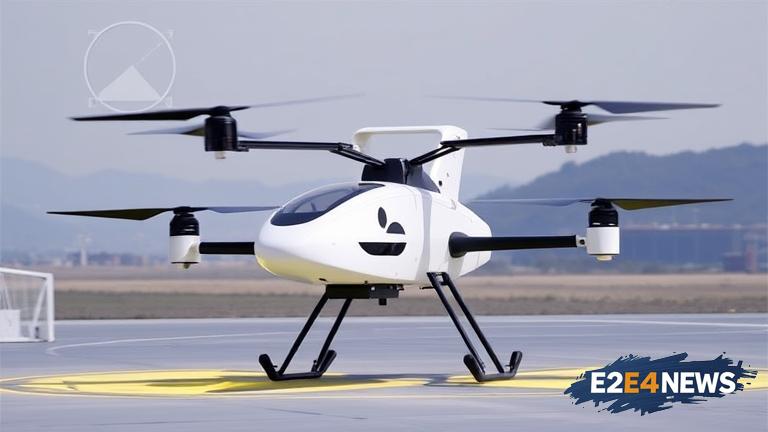The Federal Aviation Administration (FAA) has taken a significant step towards regulating the burgeoning electric vertical takeoff and landing (eVTOL) aircraft industry. The proposed rules, which are now open for public comment, aim to establish a framework for the certification and operation of eVTOL aircraft. This move is expected to have a profound impact on the urban air mobility sector, which has been gaining momentum in recent years. The proposed rules cover a range of topics, including aircraft design, performance, and safety requirements. They also address issues related to pilot training, maintenance, and operational procedures. The FAA has emphasized that the proposed rules are designed to be flexible and adaptable, allowing for the evolution of the eVTOL industry over time. The agency has also recognized the potential benefits of eVTOL aircraft, including reduced noise pollution, increased efficiency, and enhanced safety. However, the proposed rules also acknowledge the challenges associated with integrating eVTOL aircraft into existing airspace systems. The FAA has proposed a phased approach to certification, with initial certification focusing on small, single-pilot eVTOL aircraft. The agency has also established a new type certification basis for eVTOL aircraft, which will require manufacturers to demonstrate compliance with specific safety and performance standards. The proposed rules also address issues related to airworthiness, including the use of advanced materials and innovative designs. The FAA has emphasized the importance of collaboration between industry stakeholders, regulators, and the public in shaping the future of the eVTOL industry. The proposed rules are expected to undergo significant scrutiny and revision before being finalized. The eVTOL industry has welcomed the proposed rules, citing the need for clear regulatory guidance to support the development of this emerging technology. However, some stakeholders have expressed concerns about the potential impact of the proposed rules on the industry’s growth and innovation. The FAA has encouraged public comment and feedback on the proposed rules, which will be accepted for a period of 60 days. The agency has also announced plans to hold public meetings and workshops to discuss the proposed rules and gather input from stakeholders. The proposed rules are seen as a significant milestone in the development of the eVTOL industry, which is expected to play a major role in shaping the future of urban air mobility. The FAA’s move is also expected to have implications for the broader aviation industry, as eVTOL aircraft are likely to disrupt traditional air transportation models. The proposed rules are a testament to the FAA’s commitment to supporting innovation and safety in the aviation industry. As the eVTOL industry continues to evolve, it is likely that the proposed rules will undergo significant revisions and updates. The FAA has emphasized the importance of staying ahead of the curve in regulating this emerging technology. The proposed rules are a major step forward in establishing a framework for the safe and efficient operation of eVTOL aircraft. The eVTOL industry is expected to continue to grow and expand in the coming years, with the proposed rules providing a foundation for this growth. The FAA’s move is seen as a positive development for the industry, which is expected to create new jobs, stimulate innovation, and improve urban air mobility. The proposed rules are a significant achievement for the FAA, which has been working closely with industry stakeholders to develop a regulatory framework for eVTOL aircraft. The agency’s efforts are expected to pay off in the long run, as the eVTOL industry continues to mature and expand. The proposed rules are a major milestone in the development of the eVTOL industry, and are expected to have a lasting impact on the future of urban air mobility.





